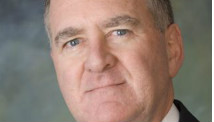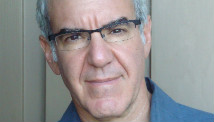Our 12 Rules of the Internet
Our 12 Rules of the Internet
Our 12 Rules of the Internet
Our 12 Rules of the Internet
Our 12 Rules of the Internet
Our 12 Rules of the Internet
Our 12 Rules of the Internet
Our 12 Rules of the Internet
Our 12 Rules of the Internet
Our 12 Rules of the Internet
Our 12 Rules of the Internet
Our 12 Rules of the Internet
Our 12 Rules of the Internet
STORY HIGHLIGHTS
- Yes, there ARE some rules to the Internet, though, for now they're mainly an inside joke
- Some rules based on pop culture, some have become Web memes
- Other rules ominously quote Anonymous
- Is there a need for rules on the vast and wild Web? Depends on where you stand
Editor's note: In the gallery above, we've selected a handful of our favorite Internet rules, or truths. (You might recognize a few.) What are some of yours? Tell us in the comments. We'll feature some of the best on CNN.
(CNN) -- Hello!
Welcome to the Internet. It's a big place, so let me show you around.
You're approaching Oversharing Pass, where residents routinely post too much information. The Facebook Gorge and Twitter Triangle are particularly nefarious time-sucks. Restraint is advised.
Up ahead is Hyperbole Junction, which is the Worst. Spot. Ever. We recommend that you maintain an even keel and stay to the center; the extreme left and right can be dangerous.
And over there is the infamous Lair of Sociopaths, the home of trolls and loners who mercilessly mock everyone who enters their territory. Watch your step: They may trip you up and you'll fall into the Chasm of Lulz.
Our world isn't all dangerous, of course. You may visit Squee City, where images of cute cats and laughing babies fill the landscape. You'll also meet countless kind strangers, hilarious raconteurs and hard-working fact-checkers. They make it all worthwhile.
Hmm. Maybe it would be easier if you had a guide -- you know, some rules to help you find your way.
What, you didn't know there are rules of the Internet?
Of course there are rules. How do you think we maintain order around here?
A parody of rules
That's a joke.
But there really are some rules of the Internet -- even if they, too, began as kind of a joke.
According to the site KnowYourMeme.com, the Rules began around 2006 as a guide for the Internet collective Anonymous and emerged on the old Encyclopedia Dramatica, a bawdy meme catalog. Soon a version emerged on 4chan, an online bulletin board where most users post anonymously, says Jamie Cohen, director of web/digital media at Hofstra University's School of Communication.
"Chris Poole (4chan's founder) kind of designed it, kind of like a Netiquette rules," he says, describing the unspoken code of conduct that lubricates Internet discourse. (Poole has attributed the rules to Gaia Online, a role-playing community.)
But the rules of the Internet deliberately mocked many of those conventions. The self-reflexive parody fit perfectly with its community's attitude, points out Anthony Rotolo, a professor at Syracuse University's School of Information Studies.
"These jokes are meant to comment on something happening in the world," he says. "Later they get accepted as truisms or become a meme."
The absurdity has been reflected even in the supposed number of rules. Though the best-known first version claimed there were 50 rules, only 18 were listed. Number 1 was initially "Do not talk about Rules 2-33"; no Rules 2-33 were on the list.
The sarcastic attitude was reinforced by the kicker found on Encyclopedia Dramatica. It was a parody of Wikipedia's stub language: "This article is crap. You can help by completely re-writing it."
'Fight Club' and Monty Python
Very quickly, the lists started multiplying and expanding, liberally borrowing from comedy, Web culture and math-science tropes. On one list, a few were designated by complex numbers and mathematical symbols. Some were observations; others were directives.
Some have traced the Internet rules to Chris Poole, the founder of 4chan.
Two rules were taken from "Fight Club": "You do not talk about 4chan (or "/b/," 4chan's random, free-wheeling bulletin board) and "You DO NOT talk about 4chan." One version of Rule 6 stated "There is no Rule 6," which is from a Monty Python sketch. Rule 42, "Always bring a towel," was drawn from Douglas Adams' "The Hitchhiker's Guide to the Galaxy" series. (If you have to ask, read the books.) "Profit," Rule 49, came from "South Park."
Other rules went the reverse direction and became part of mainstream culture. Rule 34 -- "If it exists, there is porn of it" -- is likely the most famous. But there's also "Pics or it didn't happen" (Rule 30), "For every given male character, there is a female version of that character; conversely for every given female character, there is a male version of that character" (Rule 63) and, of course, the corollary to Rule 34 -- "If no porn of it exists at the moment, it will be made" (Rule 35).
Most retained a sense of humor, riffing off established rules and occasionally ending with a giggly "No exceptions."
But a handful were, and remain, as serious as a judge -- notably the three directly about Anonymous (commonly Rules 3-5):
- We are Anonymous.
- We are legion.
- We do not forgive, we do not forget.
The overall Internet rules may have started as a joke, but such ominous language from Anonymous speaks to some of the paradoxes of the Web:
Rules? Why do we need some stinkin' rules?
After all, rules can be helpful -- or divisive. They can create community -- or subvert it.
Even Anonymous, the activist group itself, cuts both ways, says Rotolo. When it hacked the extremist Westboro Baptist Church, many people cheered. But when it goes after less unpopular targets, some cry vigilantism.
Cohen says that the rules themselves try to have it both ways. They're funny until someone gets hurt.
They "play more of a game type of role. They can be bent or broken or cheated or moved around, as you would in any game that has no physical reaction," he says. "That doesn't take into account ever the result of real people being affected by this -- such as teenagers, children, anybody who's seeing things that they shouldn't."
He adds, "There's a lot of rules in there that work for (the creators) more than anyone else. Until they become victims of their own thing, they don't know how powerful the rules are."
Evolving from the Wild West
Of course, the Internet isn't that old, and we're still in its Wild West era in many ways. As the technology evolves from a handful of hackers on Usenet bulletin boards to billions of users on officially sponsored sites, the customs -- the rules -- of the Web will evolve with it.
But we're not talking about the kinds of changes that your family makes to the rules of Monopoly (no, Free Parking is NOT for the pool of money acquired via Chance and Community Chest). We're talking something more expansive: All the established customs of our carbon-based life forms, making way for the instantaneous and virtual modes of silicon-based electronics.
Who knows what new rules may be written?
"When you're in the midst of social change, it's impossible to determine where it's going," says Peter S. Vogel, a former programmer who's now a Dallas-based attorney. "And I think we are in the greatest social change in the history of humans, because there are no boundaries of geography or time."
We haven't even sorted out what happens when the differences in local culture meet global technology. Bruce Umbaugh, a philosophy professor at Webster University in St. Louis who teaches a course on philosophy and technology, argues that not all parts of the world are as tolerant or open-minded as Western democracies.
There's a lot of rules in there that work for (the creators) more than anyone else.
Jamie Cohen, Hofstra University
"There are a lot of other places in the world that are actively using the technology of the Internet to control the free communication among citizens, and to identify critics of the government and hurt them," he says. "We need to be mindful in what we advocate from our perspective that the tools that are implemented on the Net are tools for the global Net."
In other words, citizens of other countries already face actual, enforceable rules -- unlike the folkways established by Web users in the West. Witness the frictions of the Arab Spring, or the restrictions of societies such as North Korea.
It's the kind of perspective that provides a different context for the issues raised by a libertarian, anything-goes Internet. It's hard enough to stop "Star Wars" comment boards from devolving into flamebaiting, meme-generating files of NSFW Yodas.
So for now, we're still making our way through the Series of Tubes, and nobody knows where the boundaries lie. We joke, we grimace and we marvel at the creativity of the hive mind. The Internet is a big place, and countless cultures have set up residence. Eventually, what is now humor may lose its zing; what are now customs may become laws.
Will the rules ever become The Rules? Maybe some future generation will figure out the true guideposts of Internet life, and the singularity will be upon us.
Nah. It'll never happen.
What did we miss? Share your rules for the internet below in the comments. We'll feature some of the best on CNN.

 iPhone, iPad and Mac are trademarks of Apple Inc., registered in the U.S. and other countries. App Store is a service mark of Apple Inc.
iPhone, iPad and Mac are trademarks of Apple Inc., registered in the U.S. and other countries. App Store is a service mark of Apple Inc.










